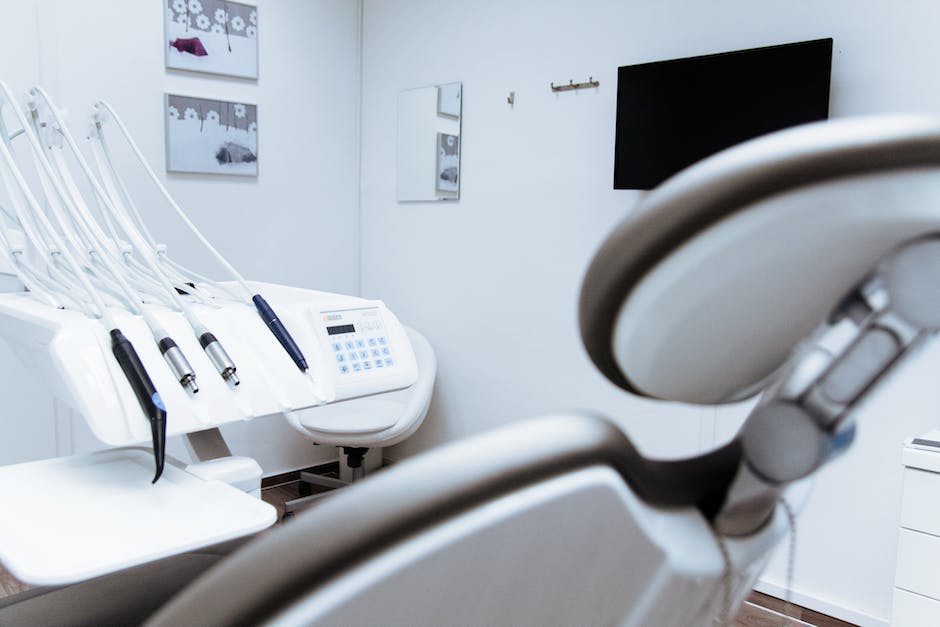Dyspepsia, a condition often referred to as indigestion, is a widespread aliment affecting the lives of numerous individuals each day. Understanding this condition, its causes, types, symptoms, and the profound impact it has on quality of life is crucial in managing and potentially alleviating the complications it presents. Living with dyspepsia can be a significant challenge; however, with the right knowledge on diagnosis procedures, traditional treatments, alternative remedies, and preventative measures, it becomes feasible to reduce its interference with daily activities. From common medical practices to lifestyle alterations, this article will delve into the multiplex world of dyspepsia, bringing to the forefront valuable insights for those dealing with this tricky condition.
Understanding Dyspepsia
Understanding Dyspepsia: Definition and Causes
Dyspepsia, often referred to as indigestion, is a common disorder that impacts the upper digestive tract. It manifests as a feeling of discomfort or burning in the stomach or upper abdomen, often after eating. While dyspepsia itself is not a disease, it can be a symptom of several gastrointestinal (GI) disorders such as gastroesophageal reflux disease (GERD), peptic ulcers, or gallstones. It can also be triggered by lifestyle factors such as consuming spicy foods, overeating, or excessive consumption of alcohol.
Types of Dyspepsia
There are primarily two types of dyspepsia – functional (or non-ulcer) and organic. Functional dyspepsia presents itself in patients with no identifiable underlying conditions, abnormalities, or inflammation in the stomach lining. Organic dyspepsia, on the other hand, is associated with defined GI diseases or conditions such as peptic ulcers, helicobacter pylori infection, or pancreatic disorders.
Symptoms of Dyspepsia
Symptoms of dyspepsia can vary greatly from one individual to another. However, common symptoms often include heartburn, bloating, nausea, burping, and a feeling of fullness even after eating a small amount of food. In the case of organic dyspepsia, additional symptoms such as unexplained weight loss, persistent vomiting, or difficulty swallowing may also occur.
Impacts on Quality of Life
Living with dyspepsia can greatly impact one’s quality of life. Daily discomfort, coupled with pain and anxiety around mealtimes, can disrupt personal routines and lifestyle choices. An anecdote from a 52-year-old woman living with the disorder revealed, “you feel uncomfortably full after regular meals, and the constant feeling like you’ve overeaten is challenging to manage, it’s not just physically draining but also mentally stressful.”
Dyspepsia Treatments
Several treatment options are available for managing dyspepsia. Often, treatment involves addressing the underlying cause of the condition. For instance, if dyspepsia is linked to an infection caused by the helicobacter pylori bacteria, antibiotics may be prescribed. In other cases, over-the-counter or prescription medications such as antacids, proton pump inhibitors, or H2 receptor antagonists can be used to neutralize or reduce stomach acid. Lifestyle modifications, including healthier dietary habits, regular physical activity, and stress management techniques, are also beneficial in managing dyspepsia.
In some cases, despite various treatments, dyspepsia symptoms may persist.
A man named John, age 45, noted that “even though I’ve gone through several treatments, the symptoms persist. The discomfort after meals, the burning sensation, it’s always there”. Hence, a comprehensive approach to managing dyspepsia often involves a combination of medication, lifestyle changes, and sometimes more invasive treatments like surgery depending on the cause of dyspepsia.
Modern Advances in Dyspepsia Management
In recent years, extensive research has been conducted to improve our understanding of dyspepsia and develop more efficient treatment methods. Innovations in treatment options that are currently under experimental stages include novel medication types, therapies focusing on the nervous system, and techniques directed at enhancing the motility of the digestive tract. Ensuring patients consult health experts and actively participate in their own healthcare choices is essential for successful dyspepsia management.

Diagnosis of Dyspepsia
Breaking Down Dyspepsia
Often associated with the term indigestion, dyspepsia is essentially a collection of symptoms causing discomfort or pain in the upper abdominal area. Rather than a specific disease, it’s a series of symptoms impacting the gastrointestinal tract, particularly the stomach and the initial part of the small intestine. Common signs may include feelings of bloating, excess belching, nausea, and a burning or gnawing sensation in the upper abdomen or stomach area.
Diagnosis of Dyspepsia: Procedures and Tests
The diagnosis of dyspepsia starts with a comprehensive health history and physical examination. During this initial assessment, physicians generally ask questions relating to the nature and duration of symptoms, any family history of related conditions, and lifestyle factors such as diet, smoking, and alcohol consumption.
Blood tests may also be ordered as part of the diagnostic process. These tests help rule out conditions such as anemia, which can cause similar symptoms, and stomach infections caused by a bacteria known as Helicobacter pylori. In some cases, a stool sample may be taken to check for blood, which could indicate an ulcer or another digestive issue.
Where necessary, an endoscopy may be used for diagnosing dyspepsia. This procedure allows doctors to visually inspect the stomach and upper digestive tract by inserting a small camera through the mouth and down the esophagus. This examination can reveal if there are any physical abnormalities such as ulcers, tumors, inflammation, or signs of gastroesophageal reflux disease (GERD).
Dyspepsia Treatment
Treatment of dyspepsia often depends on the underlying cause, if one is found. If an infection with Helicobacter pylori is detected, antibiotics are usually prescribed to eradicate the bacteria. If an endoscopy reveals an ulcer, treatments may include medications to reduce stomach acid and lifestyle changes such as dietary modifications or stress reduction.
For those with no identifiable cause (known as functional or non-ulcer dyspepsia), symptom management is the primary goal of treatment. This may entail lifestyle changes, including dietary adjustments, increased physical activity, and stress management techniques. Over-the-counter or prescribed medications can also be used, such as proton pump inhibitors, which reduce stomach acid, or prokinetic agents, which improve stomach emptying.
Limitations and Further Testing
In certain cases, further diagnostic procedures may be necessary if initial tests do not identify a clear cause of symptoms or if treatment does not alleviate the discomfort. These additional tests might include imaging procedures like an ultrasound or CT scan, or functional tests such as a gastric emptying study to assess how quickly food leaves the stomach.
It should be noted that even with comprehensive diagnostic procedures, the cause of dyspepsia remains unknown in about 50% to 60% of patients. Such cases are referred to as functional, or idiopathic, dyspepsia. This does not mean that symptoms are imaginary, but rather that a clear medical cause has not been identified. Treatment in these cases will primarily focus on symptom management and improving the quality of life for the patient.
A Roadmap for Dealing with Dyspepsia
Dyspepsia, while commonly considered harmless, can significantly impair daily life and well-being. Attaining an accurate diagnosis through a detailed evaluation is crucial to devise an impactful plan of treatment. Should you be experiencing persistent or severe symptoms of dyspepsia, reaching out to a healthcare professional for diagnosis and suitable treatment is advised.

Traditional Treatment Options
Self-Care with Over-the-Counter Dyspepsia Medications
Over-the-counter (OTC) medications, readily available at your local pharmacy, can offer an initial solution to manage dyspepsia symptoms. Options include antacids like Rolaids, Tums, and Maalox, which can counteract excess stomach acid and provide quick relief for heartburn, a common symptom of dyspepsia. Proton pump inhibitors (PPIs), like Prilosec OTC, or H2 blockers such as Pepcid AC, Tagamet HB, and Zantac, can be used to curtail stomach acid production and reduce discomfort.
Though these OTC solutions can be effective, it’s important to be aware of potential side effects, which may include constipation, diarrhea, and, in rare circumstances, kidney issues. It’s also worth noting that long-term use of PPIs could result in vitamin B12 deficiency and a heightened risk of fractures, whereas H2 blockers can interfere with the absorption of certain vitamins and minerals.
Prescription Medicines for Dyspepsia
Prescription medicines may be a more appropriate treatment plan when OTC drugs fail to bring long-term relief. More potent PPIs like Nexium, Prevacid, and Protonix are often prescribed for intense or persistent dyspepsia symptoms. For patients experiencing symptoms predominantly at night, H2 blockers such as Famotidine and Ranitidine may be prescribed.
Prokinetic Agents and Cytoprotectant drugs could also be prescribed in certain cases. These medicines can help speed up the stomach’s emptying process or protect the tissues lining the stomach and small intestine, respectively.
However, these drugs can have side effects too. More potent PPIs might cause headaches, diarrhea, constipation, nausea, and in rare cases, kidney issues. Prokinetic Agents may induce fatigue, anxiety, and depression. Cytoprotectant drugs can lead to constipation, diarrhea, dry mouth, and changes in sleep patterns.
Treating Dyspepsia through Lifestyle Modifications
Beyond the scope of medicinal interventions, management of dyspepsia can be significantly improved with particular lifestyle adjustments. Such adjustments might entail steering clear of specific foods and beverages known to provoke dyspepsia symptoms. This includes alcohol, coffee, carbonated drinks, and food items that are spicy or greasy. Likewise, eating smaller meals more frequently rather than fewer large meals, and taking the time to eat slowly, can aid in proper digestion.
Other beneficial changes include giving up smoking, as it has been identified to weaken the muscles that control the lower part of your esophagus, resulting in acid reflux. Furthermore, working to reduce stress levels can help, given that stress can intensify dyspepsia symptoms. Regular exercise can also contribute positively as it aids in digestion and alleviates stress.
It’s important to be aware that these lifestyle changes are generally without side effects. However, some individuals may find certain modifications, such as diet alterations or limiting specific food and beverage intake, a bit difficult. Keep in mind that no two people are exactly alike – what works well for one may not work for another.

Alternative Treatments and Home Remedies
Decoding Dyspepsia and Delving into Alternative Remedies
Commonly known as indigestion, dyspepsia encompasses a variety of symptoms, including a feeling of fullness during or after meals, discomfort or pain in the upper abdomen, heartburn, and bloating. While many patients may turn to conventional medical treatments such as antacids, proton pump inhibitors, or H2 antagonists, there’s a multitude of alternative remedies and home-based solutions that can help relieve these symptoms.
Dietary Changes
Diet plays a crucial role in managing dyspepsia. A balanced diet can significantly reduce flair-ups, especially if it’s high in fiber and low in fat and spice. It’s advisable to monitor food intake and identify which foods elevate your symptoms. Common culprits might include fatty or spicy foods, excessive caffeine, alcohol, or carbonated beverages. Implement smaller, more frequent meals rather than consuming three large meals per day. This approach slows digestion, reduces stomach acid production, and can minimize dyspeptic symptoms.
Herbal Remedies
Several herbs are known for their digestive health benefits. Peppermint has traditionally been used to soothe digestive issues, including dyspepsia. The menthol in it relaxes the stomach muscles and reduces the production of gas. Ginger is another herb that has been shown to ease stomach discomfort. It speeds up gastric emptying, preventing the build-up of gas, and alleviates nausea. Chamomile has anti-inflammatory properties that can help soothe the stomach lining. Always consult with a healthcare provider before beginning any herbal remedy treatment to ensure it is safe for you and won’t interact negatively with any other medications.
Stress Management Techniques
Stress and anxiety are common triggers for dyspepsia. Implementing stress management techniques can help reduce the frequency and intensity of indigestion bouts. Techniques such as meditation, controlled breathing, yoga, and progressive muscle relaxation encourage the body to relax and reduce stress hormones, thereby improving digestion. Regular exercise also helps boost your mood, keeping stress at bay, and contributes to overall digestive health.
Acupuncture and Other Non-Traditional Therapies
Studies have shown that acupuncture, a practice in traditional Chinese medicine, can help alleviate symptoms of dyspepsia. This therapy involves inserting fine needles at specific points on the body to re-balance energy flow. Similarly, therapies like hypnotherapy and cognitive-behavioral therapy can help by altering the pain signals sent to the brain and by changing perception and response to pain, thus providing relief to some people.
To effectively manage dyspepsia, alternative treatments and home remedies might prove beneficial. However, before experimenting with any new treatment approaches, it’s crucial to engage in a thorough consultation with a healthcare provider. Persistent or severe symptoms of dyspepsia may suggest more serious underlying conditions like gastric ulcers or stomach cancer, necessitating specific medical treatments.

Preventing Dyspepsia
Modifying Eating Habits: A Practical Approach to Dyspepsia Prevention
One of the most significant steps towards preventing dyspepsia revolves around the optimization of your eating patterns. This can be achieved through relatively simple modifications, such as opting for smaller, more frequent meals throughout the day as opposed to three larger ones. Overindulgence often triggers dyspepsia symptoms, so by keeping portions in check, these can be largely avoided. The elimination or minimization of triggers foods, such as spicy, fatty, and fried fare, is equally pertinent given their tendency to irritate the digestive system and induce dyspepsia. Likewise, caffeinated and alcoholic beverages can aggravate dyspepsia symptoms and should be either consumed moderately or avoided completely.
Dietary Suggestions for Dyspepsia Prevention
A balanced diet with emphasis on fiber-rich foods like whole grains, varied fruits, and vegetables can help prevent dyspepsia. Fiber can speed the passage of food through your system, reducing the risk of irritation and inflammation in your digestive tract. Drinking enough water each day also aids digestion and can help to prevent symptoms.
Stress Management and Dyspepsia
There’s a strong connection between your state of mind and the state of your stomach. Stress and anxiety can trigger or exacerbate dyspepsia symptoms. It’s important to identify sources of stress and work towards managing them effectively. This could involve counseling, mindfulness practices like meditation, or stress management training. Regular sleep and relaxation can also contribute to the prevention of dyspepsia.
Regular Exercise: Key to Gut Health
Despite what popular belief may think, regular physical activity can positively impact your digestive system and can help in preventing dyspepsia. Exercise helps stimulate the muscles of the gastrointestinal tract which aids digestion and keeps your gut healthy. Whether it’s a brisk walk, yoga, or more vigorous activity, maintaining regular exercise could help reduce dyspepsia symptoms.
Importance of Regular Medical Checkups
Regular medical checkups are essential to keep a watchful eye on health conditions like dyspepsia. It’s not uncommon for dyspepsia to be caused by an underlying medical issue such as an ulcer or gastroesophageal reflux disease (GERD). Regular check-ups can aid in early detection of these conditions and therefore lead to prompt treatment. Additionally, doctors can provide personalized recommendations for lifestyle and dietary changes that can further prevent dyspepsia.
Medication as Preventative Measure
In some cases, medications might be recommended to treat or prevent dyspepsia. Over-the-counter antacids, for instance, neutralize stomach acid and can provide quick relief from dyspeptic symptoms. Other types of medication, like proton pump inhibitors or H2 blockers, reduce the amount of acid in the stomach and can be used for more chronic forms of dyspepsia. However, it’s crucial to consult a medical professional before starting any new medication.

Dealing with dyspepsia can indeed be challenging, but with the right tools and information, it’s possible to lead a healthier, more comfortable life. A comprehensive understanding of dyspepsia, coupled with knowledge of both traditional and alternative treatments, allows for more effective management of the condition. However, prevention is always better than cure. Therefore, implementing the suggested changes in diet, exercising regularly, and staying aware of stress levels form part of a proactive approach to this health condition. Remember, chronic or severe symptoms should not be ignored and regular medical check-ups are recommended to deal effectively with dyspepsia and to keep abreast of the latest diagnostic and therapeutic options.
